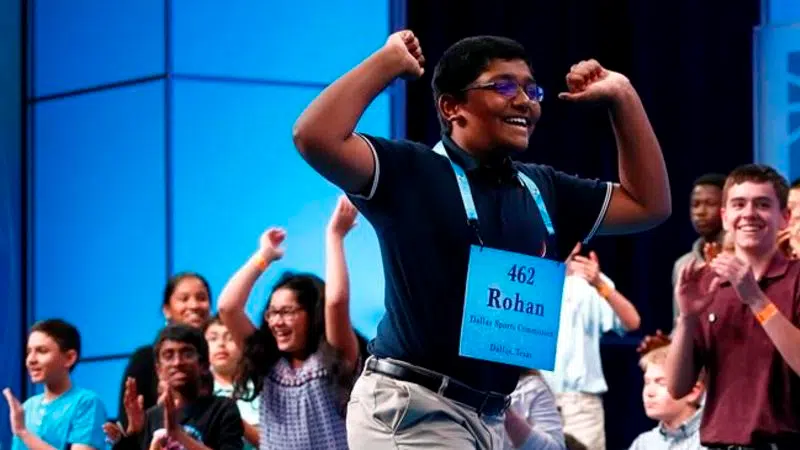
Elite 8: National Spelling Bee too easy for octet of champs
OXON HILL, Md. — There were warning signs throughout a marathon day of spelling that this Scripps National Spelling Bee would not conclude like any other in the event’s 94-year history.
Rishik Gandharsi sensed it as he stepped to the microphone for the ninth round of Thursday night’s prime-time finals, when he was one of eight spellers remaining onstage.
“Just out of curiosity,” Rishik asked pronouncer Jacques Bailly, “do you happen to know what time it is?”
